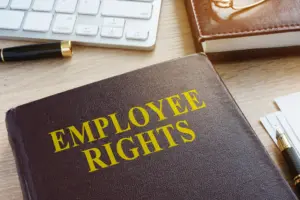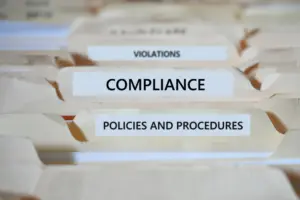Workplace retaliation happens when an employer punishes an employee for participating in a legally protected activity, like reporting misconduct or supporting a coworker’s complaint. Federal laws protect employees from this type of unlawful conduct, and will require employers to prohibit retaliation of all forms from occurring in the workspace.
Attorneys who represent employees can play a critical role in helping clients fight against indirect or direct discrimination based on protected characteristics. Unfortunately, many employees experience retaliation after asserting their rights or engaging in investigations meant to address unfair treatment in the workplace. Taking a stand against retaliation is not only about defending a person’s career, but to also seek justice and ensure all workers are treated with respect.
If you believe you have been retaliated against, West Coast Employment Lawyers is here to help. We will provide quality legal services to navigate you through the claims process, from collecting evidence and submitting complaints to negotiating settlements or pursuing litigation (if needed). We strive to advocate on your behalf, hold employers accountable, and get you the compensation you deserve.
To book a FREE consultation, you can reach out to us by calling (213) 927-3700 or completing our quick online contact form.
What Qualifies as Retaliation in the Workplace?

Workplace retaliation happens when an employer punishes an employee for participating in a legally protected activity. For instance, workplace discrimination. If you happen to encounter any form, such as age discrimination, gender discrimination, national origin discrimination, violations of the Disabilities Act, or even discrimination resisting sexual advances, you have every right to have it reported. Facing retaliation as a result will be considered illegal under federal and state law. Some protected activities include the following:
- Filing a complaint
- Reporting unlawful behavior
- Requesting reasonable accommodations
- Taking family or medical leave
- Partaking in an investigation
Retaliation can be seen in many forms, like termination, pay cuts, or poor performance reviews. Any adverse employment action that would discourage a reasonable person from performing protected activities can be deemed as misconduct. Federal laws, including Title VII of the Civil Rights Act (Title VII) and California’s Fair Employment and Housing Act (FEHA), prohibit retaliation and protect employees against it. If you believe that you are experiencing such treatment, it is important that you note down the incident. Be sure to have it reported through the right internal channels and seek legal guidance to safeguard your rights. You can file your complaint with the Civil Rights Department (CRD) or the Equal Employment Opportunity Commission (EEOC).
Who Is Protected From Retaliation in the Workplace?
All employees are given the right to work free from unfair treatment and retaliation after reporting workplace misconduct. Protection may extend to individual employees in private and public sectors, as well as federal employees who work under government agencies. Under state and local laws, such as FEHA and Title VII, it is prohibited for an employer to retaliate against someone who reports workplace discrimination or harassment. These protections will apply when an employee files or supports a claim or refuses to engage in unlawful acts, like sexual advances from a supervisor or co-worker.
They will also cover employees who request accommodations under the Disabilities Act, report age discrimination, or need to make adjustments for religious practices or family responsibilities. Basically, the law will defend anyone who takes lawful action to pursue justice in the workplace.
What to Do if You Feel Retaliation at Work?
If you feel like you are being retaliated against at work, you should consider doing the following steps:
- Document everything. Be sure to have records covering the timeline of events, copies of electronic communications, schedule changes, performance evaluations, and notes of in-person conversations you have had with your supervisor or human resources (HR) department. Save the names of the co-workers who also witnessed what happened to you.
- Report the retaliation internally (if safe). You can let your HR know about what you are going through. Share with them that you are being unfairly treated as a response for doing a protected activity, like reporting sexual advances, requesting accommodation for a religious practice, or even committing to family responsibilities.
- Find a legal representative. Talking to a lawyer, particularly one who manages retaliation cases, early on can help you get substantial evidence and meet deadlines for legal action. This will enhance your chances of claiming fair compensation for any losses you suffered as a result of your employer’s actions.
What Laws Protect You Against Workplace Retaliation?
In California, state and local laws work alongside federal regulations to prohibit retaliation against employees who voice their concerns over unlawful behavior at work. These regulations ensure that individual employees can comfortably report workplace discrimination, sexual harassment, or unfair treatment without having to fear the possibility of losing their jobs or encountering adverse action.
The primary state law protecting workers is FEHA, which makes it unlawful for an employer to retaliate against someone who reports or assists in an investigation involving employment discrimination or harassment. Whether you file a complaint internally, testify as a witness, or support someone else’s discrimination claim, you are protected regardless.
In addition to FEHA, other California laws will also protect employees against retaliation:
- Labor Code 1102.5 shields whistleblowers who report violations of state or federal laws, whether such information has been shared to a government agency or someone with the company who has authority to commence an investigation.
- Labor Code 98.6 will prohibit retaliation against workers who file wage claims or report labor violations.
- California Family Rights Act (CFRA) reflects the federal FMLA by protecting workers who take leave for medical or family reasons.
- Workers’ Compensation Laws make it illegal to punish someone for filing an injury claim or requesting medical treatment after suffering a workplace accident.
For federal employees working in California, similar legal protections may apply under certain statutes, like Title VII, Americans with Disabilities Act (ADA), and the Age Discrimination in Employment Act (ADEA). Each one bans retaliation for exercising workplace rights. Combined, these overlapping regulations offer strong protections.
How Do You File a Workplace Retaliation Claim?
A workplace retaliation claim must be filed in good faith, meaning the employee will need to reasonably believe that they were opposing or reporting an unlawful practice. To qualify for legal protection against retaliation, you must show the three of the following elements:
- You participated in a legally protected activity (reporting discrimination, sexual harassment, or any other labor violations).
- Your employer took adverse action against you.
- There is a casual connection between your protected activity and the employer’s retaliatory conduct.
If you suspect your employer retaliated against you for exercising your rights under the state’s labor laws. You may be entitled to file a retaliation complaint with the Labor Commissioner’s Office. This can be fulfilled online, by mail, email, fax, or in person at a local office. Once your complaint has been received and accepted, the Retaliation Complaint Investigation Unit will assign an investigator to look into the information you presented and interview witnesses.
What Happens if an Investigation is Valid?
If the investigation finds that your employer did violate the law, the Labor Commissioner may order remedies, including back pay, reinstatement, or other compensation. In most cases, a retaliation complaint with the DLSE will need to be filed within one year of the retaliatory action, although certain regulations may have shorter deadlines.
You can also file a retaliation complaint under FEHA with the CRD if your claim involves retaliation pertaining to discrimination or harassment based on a protected trait. Complaints can be provided through the Cal Civil Rights System online, portal, by mail or phone. Employees will be given about three years from the date of the retaliatory act to submit a complaint with the CRD.
If the CRD investigates these matters and detects reasonable cause, it will notify all parties involved and may seek to resolve the case through either medication or conciliation. If no agreement has been reached, the CRD may file a civil lawsuit on your behalf. But, if you would rather handle your claim independently, you can request an immediate right-to-sue notice from the CRD instead. Once the notice is issued, you will be granted one year to file your own lawsuit in civil court. To request a right-to-sue notice, you will have to give the following details:
- Your employer’s name and contact information
- Addresses of the involved parties
- The name or department head (HR manager or company owner)
What Are the Consequences of Workplace Retaliation?
Workplace retaliation can have serious legal consequences for the employer and the individual employees involved in the matter. When an employee is subjected to retaliation after reporting unlawful activity, the employer may be met with significant liability under employment law. Victims can be entitled to compensation for losses incurred, which may include:
- Back pay
- Emotional distress
- Reinstatement of their position (wrongful termination-related)
In more severe retaliation cases, courts may award punitive damages to punish the employer for exhibiting egregious or willful misconduct. These can serve as a warning to other companies that such unlawful treatment of employees will not be tolerated. Other than financial repercussions, retaliation claims could also damage a company’s reputation, lessen employee morale, and raise turnover.
How to Prove Workplace Retaliation?
To prove workplace retaliation, you will need to demonstrate that your employer took adverse action against you because you participated in a legally protected activity. This may consist of reporting sexual harassment, safety violations, or unethical conduct. The elements of a retaliation claim will involve the following:
- You engaged in a lawful act (cooperating with investigation or speaking up about your workplace rights)
- The employer responded by taking harmful action against you (firing, demoting, or reassigning you).
- There is a connection between your protected activity and the adverse action you endured, demonstrating that the retaliation was motivated by your involvement in the complaint.
Evidence is important. Try to maintain documentation of communications, performance reviews, and witness statements. Even minor details, like when the incident initially occurred after your complaint, can help strengthen your claim. Working with an experienced retaliation employment attorney will help you build a well-constructed case. You may also receive guidance to ensure you go through this process smoothly.
Get Legal Help From West Coast Employment Lawyers Today
If you think you were subjected to retaliation after reporting workplace discrimination or sexual harassment, you do not have to go through this on your own. Our skilled employment attorneys represent employees who have been victims of mistreatment, helping them fight for their rights. We know how intimidating it may feel to take legal action against a supervisor or even a company. Our team will carefully assess your case, gather substantial evidence, and seek justice and compensation on your behalf, whether it is done through negotiations or litigation.
If you are ready to discuss your situation confidentially, we welcome you to schedule a FREE consultation by calling (213) 927-3700 or filling out our easy online contact form.
Frequently Asked Questions About Workplace Retaliation Cases
What Does Retaliation Look Like in the Workplace?
Retaliation is any adverse action a supervisor inflicts onto an employee who engages in a protected activity, such as filing discrimination claims or reporting unfair practices. It is not just about wrongful termination. It can be a subtle move, like cutting work hours or pay, shifting you to an undesirable shift, or even excluding you from meetings with your co-workers. It can also arise if you are a witness to workplace mistreatment and are involving yourself in an investigation relating to that matter. If the action would deter a reasonable person from speaking up about employment discrimination, the law may prohibit such retaliation.
What Is the Average Settlement for a Retaliation Lawsuit?
The average settlement for a retaliation lawsuit will vary based on the intensity of such misconduct, the amount of evidence available, and the financial impact on the employee. Usually, smaller cases may have lesser value compared to severe interactions, particularly egregious conduct, which can settle for much more. Factors that can influence the outcome include the strength of the evidence presented, the duration of unemployment, and whether the affected individual went through any emotional and psychological damages. While each case has its own unique factors involved, retaliation lawsuits with substantial documentation and legal representation may contribute to a satisfactory resolution that favors the plaintiff
How Hard Is it to Win a Retaliation Lawsuit?
Winning a retaliation lawsuit can be difficult. But, strong legal protections exist to defend employees who exercise their rights in the workplace. According to Title VII and California's Fair Employment Act (also known as FEHA), it is not allowed for an employer to enforce disciplinary actions against someone who is reporting discrimination, harassment, or other kinds of violations. The challenges of winning a retaliation case will depend on the availability of evidence that ties the employee's protected activity to the adverse action they endured.
While such cases can be overwhelming to take on, employees who keep detailed records at hand, gather witness statements, and document the timeline of events will typically have a better chance of success. A positive outcome will often depend on knowing how state and local laws work with federal protections since each one has its own complaint deadlines, burden of proof, and damages standards.
How to Stop Retaliation in the Workplace?
Stopping retaliation starts with workplaces creating an environment that values accountability and an honest dialogue. Employers and employees share the responsibility to ensure complaints are handled fairly and appropriately, without any fear of punishment. Employees should document any notable signs of retaliation, like sudden changes to job tasks, unwarranted negative performance evaluations, or being excluded from work meetings. Have this all reported as soon as you can through the company's established channels (HR or compliance departments). Keeping these records will help show patterns of behavior if circumstances escalate.





























